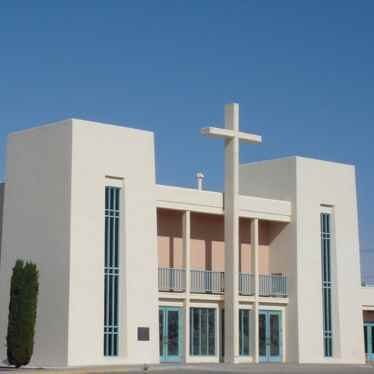THE SACRAMENTS
The sacraments are gifts from God to help us grow in the way to holiness. Christ instituted the sacraments of the new law. There are seven: Baptism, Confirmation, the Eucharist, Penance, the Anointing of the Sick, Holy Orders and Matrimony. The seven sacraments touch all the stages and all the important moments of Christian life: they give birth and increase, healing and mission to the Christian’s life of faith. There is thus a certain resemblance between the stages of natural life and the stages of the spiritual life.
Many Catholics receive initiation into many of the sacraments (Eucharist, Reconciliation, Confirmation) while they attend Catholic School. Although the St. Genevieve parish does not have a school within its parish it does provide initiation into the sacraments for its parishioners. Logistically the reception of the Sacraments are based on two criteria: age and prior sacraments received. If a person is under 7 years of age they can receive the sacrament of Baptism. If a person is older than 7 and have not been baptized they should enroll in the RCIA (Rite of Catholic Initiation for Adults) process to receive Baptism, Eucharist, Reconciliation, and Confirmation. If a person is older than 7 but younger than 17 and have been baptized and have received the Eucharist and Reconciliation they can enroll in the Youth Group to receive the sacrament of Confirmation. If a person is older than 17 and needs to receive Baptism, Eucharist, Reconciliation or Confirmation they must enroll in the RCIA process which will prepare them to receive one or all of the four sacraments.
Baptism
Holy Baptism is the basis of the whole Christian life, the gateway to life in the Spirit, and the door which gives access to the other sacraments. Through Baptism we are freed from sin and reborn as children of God; we become members of Christ, are incorporated into the Church and made sharers in her mission: Baptism is the sacrament of regeneration through water and in the word.
From the time of the apostles, becoming a Christian has been accomplished by a journey and initiation in several stages. This journey can be covered rapidly or slowly, but certain essential elements will always have to be present: proclamation of the Word, acceptance of the Gospel entailing conversion, profession of faith, Baptism itself, the outpouring of the Holy Spirit, and admission to Eucharistic communion.
The Church presumes that the parents of the child to be baptized are active Catholics who are supporting their parish faith community. The parents promise to bring the child up in the Catholic faith. Christian parents will recognize that Baptism shortly after birth also accords with their role as nurturers of the life that God has entrusted to them.
Godparents should be chosen who are an inspiration of faith and support to the parents. According to the Church law, they must be in FULL COMMUNION with the Church. This means that they must be baptized, confirmed, and received First Holy Communion, and attend Mass on a regular basis. If married, they must be married to their present spouse in the Church. Godparents may be single people over the age of 16 provided they are in full communion with the Church.
Church law also states that parents and godparents must be properly prepared to celebrate the baptism of their child. The Diocese of Las Cruces requires basic catechetical instruction of 6 hours for parents and godparents before accepting a child to be baptized. These classes may be taken at a parish of your choice.
Requirements for Baptism of an infant:
- Child must be no older than 6 years of age.
- Child’s birth certificate
- Certificate of Pre-Baptismal classes for parents and godparents
- Certificate of godparents’ sacraments (Baptism, First Communion, Confirmation, and if married, Marriage certificate) issued within the past six months. Please contact your church of baptism and request a Baptismal Certificate with all sacrament notations.
- Donation of $ 50.00
All paper work must be complete 10 days prior to the baptismal day.
If the person to be baptized is 7 years old or older, he or she needs to enroll in the RCIA process. This is a two year didactic program about the Catholic faith and doctrine. In this program the candidate or catechumen will receive all the Sacraments of Initiation at once: Baptism, First Holy Communion (Eucharist), and Confirmation. The RCIA process is offered at St. Genevieve’s.
Confirmation
Baptism, the Eucharist, and the sacrament of Confirmation together constitute the “sacraments of Christian initiation,” whose unity must be safeguarded. The reception of the sacrament of Confirmation is necessary for the completion of baptismal grace. For by the sacrament of Confirmation, [the baptized] are more perfectly bound to the Church and are enriched with a special strength of the Holy Spirit. Hence they are, as true witnesses of Christ, more strictly obliged to spread and defend the faith by word and deed.
The fullness of the Spirit is communicated to the whole messianic people. On several occasions Christ promised this outpouring of the Spirit, a promise which he fulfilled first on Easter Sunday and then more strikingly at Pentecost. Filled with the Holy Spirit the apostles began to proclaim “the mighty works of God,” and Peter declared this outpouring of the Spirit to be the sign of the messianic age. Those who believed in the apostolic preaching and were baptized received the gift of the Holy Spirit in their turn.
Very early, the better to signify the gift of the Holy Spirit, an anointing with perfumed oil (chrism) was added to the laying on of hands. This anointing highlights the name “Christian,” which means “anointed” and derives from that of Christ himself whom God “anointed with the Holy Spirit.”
For a person older than 7 years old, who is not baptized, he or she must go through the RCIA process to receive the Sacrament of Confirmation (available at St. Genevieve).
Candidates for Confirmation, who older than 7 but under 17 years old, have received Baptism, and First Communion (Eucharist), should enrolled in the Youth Group. In the Youth Group they will receive preparation for Confirmation.
Anyone wanting to receive the sacraments of Baptism, First Communion (Eucharist), or Confirmation who are older than 17 should enroll in the RCIA process
Sign-up for First and Second year confirmation classes.
Eucharist
At the Last Supper the Lord spoke to his disciples, took bread and wine, gave thanks, broke the bread, and gave them the bread of life and the cup of eternal salvation. After his resurrection from the dead, two disciples recognized his presence in these actions: speaking, taking bread, giving thanks, breaking, and sharing. In the Eucharist, the Church to this day celebrates Christ’s presence in the same sequence of actions: in the Liturgy of the Word, the Church listens with hearts burning as the Lord speaks, and She responds with words of praise and petition; in the Liturgy of the Eucharist, the Church takes bread and wine, give thanks, breaks the bread, and receives the Body and Blood of Christ.
Jesus instituted the Eucharistic sacrifice of his Body and Blood. This he did in order to perpetuate the sacrifice of the cross throughout the ages until he should come again, and so to entrust to his beloved Spouse, the Church, a memorial of his death and resurrection: a sacrament of love, a sign of unity, a bond of charity, a Paschal banquet in which Christ is consumed, the mind is filled with grace, and a pledge of future glory is given to us.
The Eucharist is “the source and summit of the Christian life.” The other sacraments, and indeed all ecclesiastical ministries and works of the apostolate, are bound up with the Eucharist and are oriented toward it. For in the blessed Eucharist is contained the whole spiritual good of the Church, namely Christ himself, our Pasch.
The Eucharist is the efficacious sign and sublime cause of that communion in the divine life and that unity of the People of God by which the Church is kept in being. It is the culmination both of God’s action sanctifying the world in Christ and of the worship men offer to Christ and through him to the Father in the Holy Spirit.
By the Eucharistic celebration we already unite ourselves with the heavenly liturgy and anticipate eternal life, when God will be all in all. In brief, the Eucharist is the sum and summary of our faith: Our way of thinking is attuned to the Eucharist, and the Eucharist in turn confirms our way of thinking.
At St. Genevieve’s we receive Holy Communion standing and singing a Eucharistic hymn. There are two options: receiving it on the hand, or on the tongue. Either way, one must receive Holy Communion with utmost reverence, as we acknowledge the real presence of Jesus in the Eucharist. It is very important to consume it immediately. After everyone receives the Eucharist the choir ends the hymn, and there is a moment of silence for individual prayer. At this time the congregation may sit or kneel.
Parishioners should go to Mass dressed appropriately and cell phones and chewing gum should be left in the owner’s vehicle. We do this out of respect for others and the holy place of worship. Daily Mass is at 7:00 a.m. Sunday Masses are at 8:00 a.m. in Spanish, 9:30 a.m., 11:00 a.m. and 5:00 p.m. in English.
Penance or Reconciliation
This sacrament is a gift from the mercy of God. Those who approach the sacrament of Penance obtain pardon from God’s mercy for the offense committed against him, and are, at the same time, reconciled with the Church which they have wounded by their sins and which by charity, by example, and by prayer labors for their conversion.
It is called the sacrament of conversion because it makes sacramentally present Jesus’ call to conversion, the first step in returning to the Father from whom one has strayed by sin. It is called the sacrament of Penance, since it consecrates the Christian sinner’s personal and ecclesial steps of conversion, penance, and satisfaction. It is called the sacrament of confession, since the disclosure or confession of sins to a priest is an essential element of this sacrament. In a profound sense it is also a “confession” – acknowledgment and praise – of the holiness of God and of his mercy toward sinful man. It is called the sacrament of forgiveness, since by the priest’s sacramental absolution God grants the penitent “pardon and peace.” It is called the sacrament of Reconciliation, because it imparts to the sinner the love of God who reconciles: “Be reconciled to God.” He who lives by God’s merciful love is ready to respond to the Lord’s call: “Go; first be reconciled to your brother.”
You were washed, you were sanctified, you were justified in the name of the Lord Jesus Christ and in the Spirit of our God. One must appreciate the magnitude of the gift God has given us in the sacraments of Christian initiation in order to grasp the degree to which sin is excluded for him who has “put on Christ.” But the apostle John also says: “If we say we have no sin, we deceive ourselves, and the truth is not in us.” And the Lord himself taught us to pray: “Forgive us our trespasses,” linking our forgiveness of one another’s offenses to the forgiveness of our sins that God will grant us.
Jesus calls to conversion. This call is an essential part of the proclamation of the kingdom: “The time is fulfilled, and the kingdom of God is at hand; repent, and believe in the gospel.” In the Church’s preaching this call is addressed first to those who do not yet know Christ and his Gospel. It is by faith in the Gospel and by Baptism that one renounces evil and gains salvation, that is, the forgiveness of all sins and the gift of new life.
A good confession includes these five steps:
- Examination of conscience
- Be sorry (honestly sorry) for your sins
- Tell all your sins to the priest
- Resolved not to repeat the sin
- Do your penance as soon as you can
Priests are hearing confessions at St. Genevieve’s every Saturday from 10:00 to 11:00 a.m., and from 4:00 to 5:00 p.m.
Preparation for this sacrament is done when a person is learning about receiving the sacrament of the Eucharist (First Communion). A person’s first confession is done prior to their First Communion.
Anointing of the Sick
By the sacred anointing of the sick and the prayer of the priests the whole Church commends those who are ill to the suffering and glorified Lord, that he may raise them up and save them. And indeed she exhorts them to contribute to the good of the People of God by freely uniting themselves to the Passion and death of Christ.
Illness and suffering have always been among the gravest problems confronted in human life. In illness, man experiences his powerlessness, his limitations, and his finitude. Every illness can make us glimpse death. Illness can lead to anguish, self-absorption, sometimes even despair and revolt against God. It can also make a person more mature, helping him discern in his life what is not essential so that he can turn toward that which is. Very often illness provokes a search for God and a return to him.
The man of the Old Testament lives his sickness in the presence of God. It is before God that he laments his illness, and it is of God, Master of life and death, that he implores healing. Illness becomes a way to conversion; God’s forgiveness initiates the healing. In the New Testament Christ’s compassion toward the sick and his many healings of every kind of infirmity are a resplendent sign that “God has visited his people” and that the Kingdom of God is close at hand. Jesus has the power not only to heal, but also to forgive sins; he has come to heal the whole man, soul and body; he is the physician the sick have need of. His compassion toward all who suffer goes so far that he identifies himself with them: “I was sick and you visited me.” His preferential love for the sick has not ceased through the centuries to draw the very special attention of Christians toward all those who suffer in body and soul.
The first grace of this sacrament is one of strengthening, peace and courage to overcome the difficulties that go with the condition of serious illness or the frailty of old age. This grace is a gift of the Holy Spirit, who renews trust and faith in God and strengthens against the temptations of the evil one, the temptation to discouragement and anguish in the face of death. This assistance from the Lord by the power of his Spirit is meant to lead the sick person to healing of the soul, but also of the body if such is God’s will. Furthermore, “if he has committed sins, he will be forgiven.”
The sacrament of Anointing of the Sick is offered by all the priests of St. Genevieve’s in the local hospitals, and nursing homes. This sacrament used to be called “Last rites”, but it does not necessarily mean that the person who will receive the Anointing is expected to die on that day. It may be received several times in the lifetime.
Holy Orders
Holy Orders is the sacrament through which the mission entrusted by Christ to his apostles continues to be exercised in the Church until the end of time: thus it is the sacrament of apostolic ministry. It includes three degrees: episcopate, presbyterate, and diaconate.
The word order in Roman antiquity designated an established civil body, especially a governing body. Ordinatio means incorporation into an ordo. In the Church there are established bodies which Tradition, not without a basis in Sacred Scripture, has since ancient times called taxeis (Greek) or ordines. And so the liturgy speaks of the ordo episcoporum, the ordo presbyterorum, the ordo diaconorum. Other groups also receive this name of ordo: catechumens, virgins, spouses, widows,. . . .
Today the word “ordination” is reserved for the sacramental act which integrates a man into the order of bishops, presbyters, or deacons, and goes beyond a simple election, designation, delegation, or institution by the community, for it confers a gift of the Holy Spirit that permits the exercise of a “sacred power” which can come only from Christ himself through his Church. Ordination is also called consecratio, for it is a setting apart and an investiture by Christ himself for his Church. The laying on of hands by the bishop, with the consecratory prayer, constitutes the visible sign of this ordination.
Only a baptized man validly receives sacred ordination. The Lord Jesus chose men to form the college of the twelve apostles, and the apostles did the same when they chose collaborators to succeed them in their ministry. The college of bishops, with whom the priests are united in the priesthood, makes the college of the twelve an ever-present and ever-active reality until Christ’s return. The Church recognizes herself to be bound by this choice made by the Lord himself. For this reason the ordination of women is not possible. No one has a right to receive the sacrament of Holy Orders. Indeed no one claims this office for himself; he is called to it by God, it is a vocation. Anyone who thinks he recognizes the signs of God’s call to the ordained ministry must humbly submit his desire to the authority of the Church, who has the responsibility and right to call someone to receive orders. Like every grace this sacrament can be received only as an unmerited gift.
All the ordained ministers of the Latin Church, with the exception of permanent deacons, are normally chosen from among men of faith who live a celibate life and who intend to remain celibate “for the sake of the kingdom of heaven.” Called to consecrate themselves with undivided heart to the Lord and to “the affairs of the Lord,” they give themselves entirely to God. Celibacy is a sign of this new life to the service of which the Church’s minister is consecrated; accepted with a joyous heart celibacy radiantly proclaims the Reign of God.
Any candidate to the priesthood must be sent by the bishop to the seminary to discern his vocation, and to learn the Theology of the Catholic Church. In the Diocese of Las Cruces there is an office of vocations. At St. Genevieve’s we pray everyday for vocations to the priesthood and religious life.
Marriage
The matrimonial covenant, by which a man and a woman establish between themselves a partnership of the whole of life, is by its nature ordered toward the good of the spouses and the procreation and education of offspring; this covenant between baptized persons has been raised by Christ the Lord to the dignity of a sacrament.
Sacred Scripture begins with the creation of man and woman in the image and likeness of God and concludes with a vision of “the wedding-feast of the Lamb.” Scripture speaks throughout of marriage and its “mystery,” its institution and the meaning God has given it, its origin and its end, its various realizations throughout the history of salvation, the difficulties arising from sin and its renewal “in the Lord” in the New Covenant of Christ and the Church.
The entire Christian life bears the mark of the spousal love of Christ and the Church. Already Baptism, the entry into the People of God, is a nuptial mystery; it is so to speak the nuptial bath, which precedes the wedding feast, the Eucharist. Christian marriage in its turn becomes an efficacious sign, the sacrament of the covenant of Christ and the Church. Since it signifies and communicates grace, marriage between baptized persons is a true sacrament of the New Covenant.
The intimate community of life and love which constitutes the married state has been established by the Creator. The vocation to marriage is written in the very nature of man and woman as they came from the hand of the Creator. Marriage is not a purely human institution despite the many variations it may have undergone through the centuries in different cultures, social structures, and spiritual attitudes. The well-being of the individual person and of both human and Christian society is closely bound up with the healthy state of conjugal and family life.
Holy Scripture affirms that man and woman were created for one another: “It is not good that the man should be alone.” The woman, “flesh of his flesh,” his equal, his nearest in all things, is given to him by God as a “helpmate”; she thus represents God from whom comes our help. “Therefore a man leaves his father and his mother and cleaves to his wife, and they become one flesh.” The Lord himself shows that this signifies an unbreakable union of their two lives by recalling what the plan of the Creator had been “in the beginning”: “So they are no longer two, but one flesh.” One flesh does not only mean sexual intercourse, rather marriage helps to overcome self-absorption, egoism, pursuit of one’s own pleasure, and to open oneself to the other, to mutual aid and to self-giving.
Moral conscience concerning the unity and indissolubility of marriage developed under the pedagogy of the old law. In the New Testament Jesus unequivocally taught the original meaning of the union of man and woman as the Creator willed it from the beginning permission given by Moses to divorce one’s wife was a concession to the hardness of hearts. The matrimonial union of man and woman is indissoluble: God himself has determined it “what therefore God has joined together, let no man put asunder.”
MARRIAGE PREPARATION
The clergy and staff of St. Genevieve’s Parish are available to assist you in preparing for your upcoming marriage; however, to complete all the steps required, you need to contact one of the priests or the deacon AT LEAST 6 MONTHS PRIOR to the anticipated date of marriage. Also, both parties must be at least eighteen years of age by the date of marriage.
If both bride and groom are registered members of another parish, one pastor needs to provide written permission for you to be married at St. Genevieve’s Church.
All of the following needs to be completed before a wedding date are final. In view of this, please do not incur expenses for invitations, receptions, etc. before you have final approval of your wedding date.
Documentation required:
Baptismal Certificates – For Catholics, a recently issued (within the past six months) baptismal certificate is required. For those not baptized in the Catholic Church, if you can obtain one, a baptismal certificate should be provided.
Bride & Groom Questionnaires – These questionnaires are completed by the staff member assisting you with your premarital preparation.
Family Witness Forms – Two family members for the bride and two family members for the groom (preferably the parents) need to testify to your marital intentions and your freedom to marry.
Pre-Marital Inventory – The staff member assisting you with your pre-marital preparation will administer this instrument which is a tool we use to assist you to prepare for married life.
Engaged Encounter – These are weekend seminars held at Holy Cross Retreat House. They are designed to assist the bride and the groom to improve their communication skills on issues regarding married life. Ask the staff member assisting you for a schedule of these weekend seminars.
Marriage License – You need to obtain a marriage license from the Court House in order for the priest to be free to represent both the Church and the state in witnessing your marriage. If you have been married by the judge and now want to be married in the Church, you can present the marriage license already signed by the judge.
Additional Documentation Required in Special Circumstances:
When the parish staff member is completing the bride and groom questionnaires, an issue may be discovered which requires additional documentation, e.g., a dispensation or declaration of nullity. Should any of these documents be required, the staff member will assist you in obtaining them in a timely fashion.
Wedding Details:
We urge you to keep your wedding arrangements as simple as possible. You will receive a booklet when your questionnaires are being completed to assist you with the liturgical choices available. Please use this booklet together, recording your choices on the form in the back of book which you may turn in as soon as you are comfortable with the issues involved. Feel free to discuss these issues with the staff member assisting you. If you choose not to prepare the wedding from this book, the Presider will choose appropriate texts.
The following are some of the most common details you need to consider in planning your wedding:
Witnesses – Your marriage vows must be proclaimed in front of a priest or deacon and two witnesses. The witnesses usually are the Maid of Honor and the Best Man.
Time of the wedding – The normal times for weddings at St. Genevieve’s are between 11:30AM and 2:00PM on a Saturday. If these time restrictions are a problem, please discuss this with the priest or deacon you have chosen to witness your marriage.
Rehearsal – The rehearsal is usually scheduled for the evening before the wedding. The rehearsal should be scheduled with the staff member assisting with your pre-marital process.
Sacrament of Penance – You are encouraged to receive this sacrament during regular time and not at rehearsal time.
Flowers – You may freely choose the types of flowers you wish to have; however, we ask that they be placed so that they do not interfere with a clear view of the ceremony, or where they interfere with the movement and could be easily knocked over, e.g., if you wish to use an arch, it should be placed at the back of the church where the wedding party will enter.
Flower girls and Ring Bearers – The children chosen for these functions should be at least five years old. Younger children often become stubborn causing delays and unneeded frustrations.
Photographs – Photographs without flash may be taken during the ceremony, but should be done by ONE designated photographer who should arrange his photographs so that they are not a distraction the wedding ceremony. Video recording is also permitted under the same conditions. The use of a tripod tends to improve the quality of videos.
Wedding Music – You are free to choose the person or choir to provide music for your wedding; however, your choice of music is limited to acceptable liturgical music. The priest or deacon witnessing your marriage must approve your choice of music.
Miscellaneous Items – Lazo and arras are a part of the Mexican traditions and are acceptable. If you choose to use a Unity Candle for your ceremony, you may use our candle holder or you may purchase your own. We do not allow the wedding party to carry in or have candles that are lit, nor do we allow aisle runners. We recommend that you save the money and don’t purchase cushions since we do not use them.
Spiritual Aspect-Your wedding preparation is an important step in the process of entering into a sound marriage. Reflection and prayer as a couple is essential as well as regular attendance at Mass and reception of the sacraments. The priests, and staff of St. Genevieve’s are available to assist you in any way in this process, and it is our prayer that you will begin your marriage with a joyful and memorable wedding ceremony.
Parish fees:
- Active, supporting, registered parishioners: $100.00. Non-registered, non-active, non-supporting: $300.00.
- Plus additional stipends: $100.00
Quinceañera
The celebration of a Quinceañera is not a sacrament, it is a celebration of life. The idea behind this celebration is that it is an act of thanksgiving for a young lady when she becomes fifteen, and to ask God for his blessing upon her and her family.
Requirements for a Quinceañera:
- The young lady must be enrolled in a Religious Education program. It has to be proven through a letter from the Director of Religious Education of her parish.
- She must be baptized. Copy of certificate has to be provided at the parish office.
- The young lady and her family (her parents) must attend Mass every Sunday. It has to be proven through a letter from the Pastor of her parish.
- To schedule a rehearsal with priest.
- Fees to reserve the date:
- $200.00 for church use for Non-parishioners, or $100.00 for church use for Registered parishioners.
- $100.00 to cover stipends
If it is not possible to meet the above requirements a blessing can be given in a Saturday evening Mass with the congregation, instead of a Quinceañera Mass.
The “Quinceañera Retreat” provided by the Diocese of Las Cruces is optional.
Sacramental Posts
Recent Posts
-
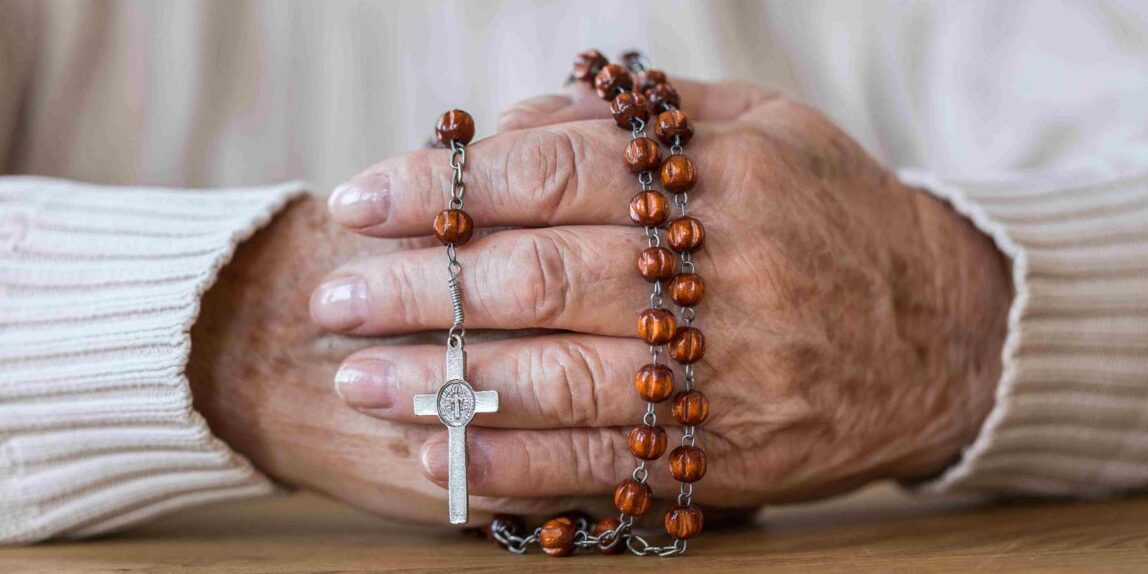
2023 Pray The City Rosary Rallies
-
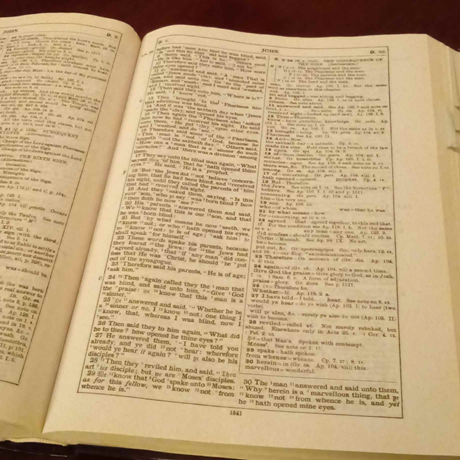
Daily Readings July 17th, 2023 – Treat Others With Kindness
-

July 16, 2023 – Parable of the Sower
-
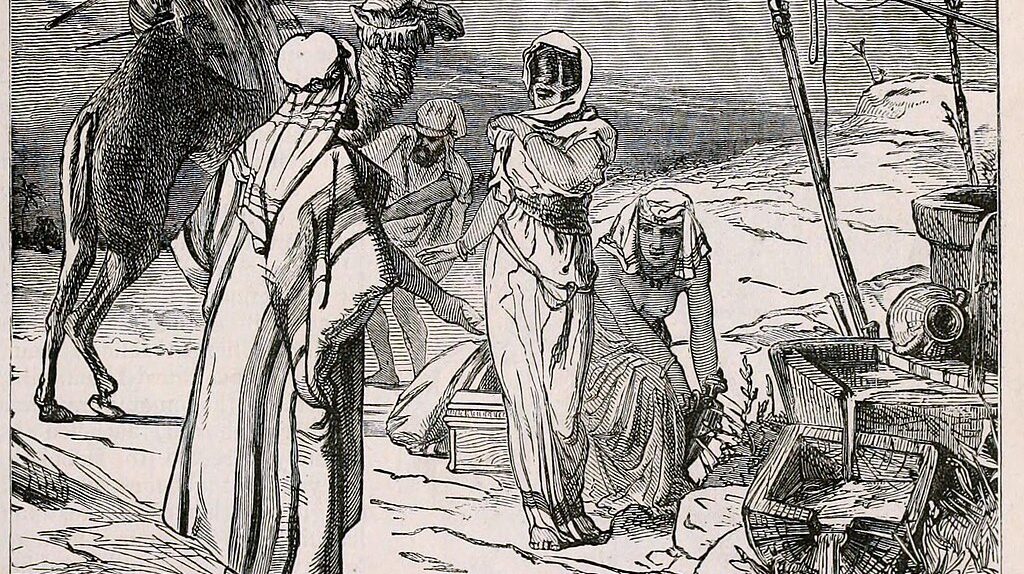
Daily Readings July 7, 2023
-
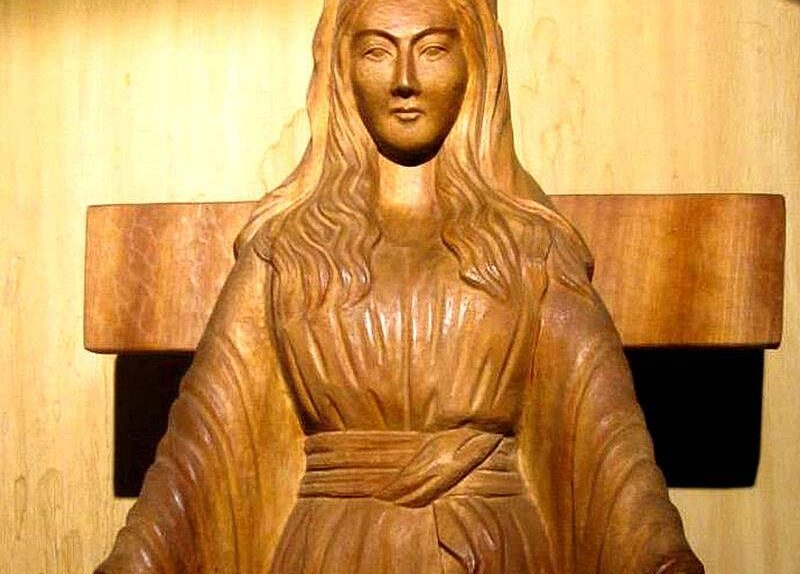
Apparition Alert: Akita July 6, 1973
-
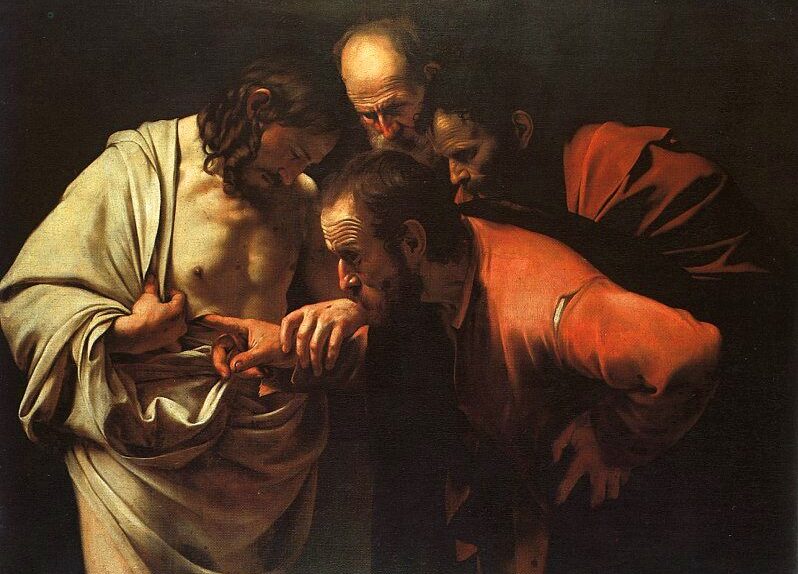
St. Thomas the Apostle
